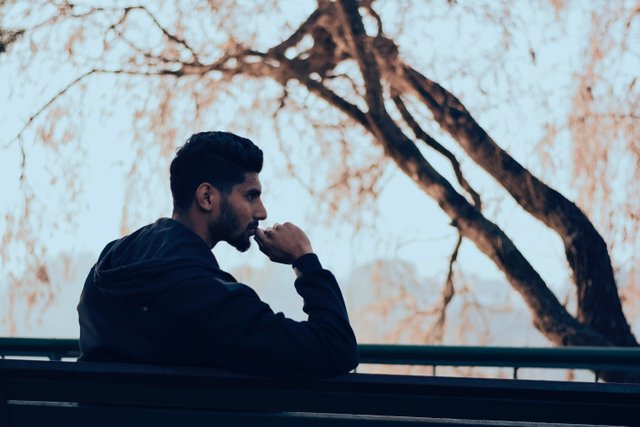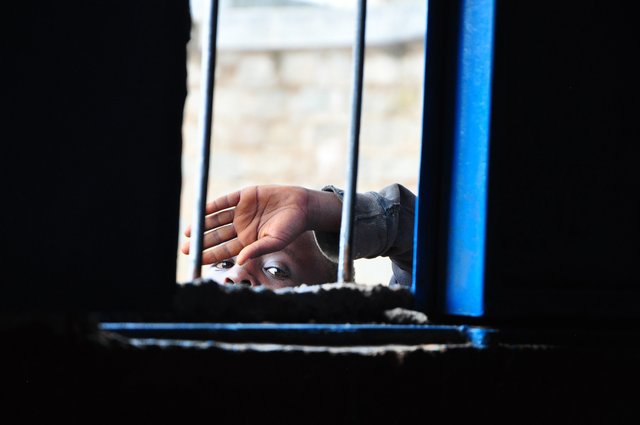Idea#21.2 What you want to know about the way you look at the world
I will never forget the day that I started hanging out with people from another culture. This day was 3 years ago and caused a lot of confusion in my life. As I said in my latest article, I have many Saudi-Arabian friends. Now, this started one day with a teammate of me. Since we both liked video games and basketball, we decided to hang out. When I arrived, he wasn’t the only one I was hanging out with, to my surprise. Two other friends of his were there as well, but he didn’t tell me. In my Dutch culture, this is kind of weird to do. I’m used to communicating about who is going to be there and what we’re going to do etc. But in the Saudi culture, this is different. They’re used to a fibe of ‘whoever wants to come over’. After I left the first time, I had had a lot of fun, but I was confused about it. At this moment I didn’t understand the fact that it was a cultural difference.

A couple of weeks later I hung out with this friend again. And to my surprise, there were other people again! At this moment I started realizing that it must be a cultural difference. I went with it and in the next few months I hanged out with my friend and his friends more and more. I started asking questions about cultural differences. The fact is that it was a lot of fun, just calling him and coming over kind of randomly. If they were just about to eat, then there was always food for you left over. It was so nice! It broadens my perspective on how things can be done and handled with your friends. This only stimulated my search for more differences, just so I could look at myself and be more critical about the way I do things.

The other side of the coin
This is, of course, the positive side of the story. My friend, his friends (who are my friends by now as well) and me had a couple of cultural differences that causes some problems over the year. Communicating about these issues can then be very hard, since you’re often offended. For instance, about 2 years ago I was moving to another place. I asked my friend to help me move and I said that we would start moving at 1PM (implying that I would like him to be there at that time). My dad arrived at precisely 1PM and we started moving. My dad kept asking when my friend would arrive and I told him what I told my friend. About 2 hours later, around 3PM my friend finally arrived. My dad was a bit pissed off since we were almost done moving, I was a bit pissed off as well. For me this was such a sign of not being able to count on someone. It took about 3 months before we started talking about it. Then I realized that it wasn’t his fault. He just wasn’t used to the idea that 1PM meant 1PM. In Middle-Eastern cultures they are not as strict about time as in the Dutch culture, so that caused a friction here. It was actually my bad for being offended and not being open to talk about it and learn.
These type of situation keep on happening, the difference is that nowadays I know how to deal with it. I even started learning Arabic just so I can understand the culture better since language and culture are interconnected. Sometimes my friends tell a joke in Arabic to each other and then they just can’t translate it, because the joke doesn’t work in English. I recognize in this the twelve topics that every culture has from Monday's article. One of the twelve topics is humor and indeed every culture has humor, it’s just different from culture to culture and not always translatable.
What do you need to understand another culture?
Curiosity is one of the most important things to be able to understand someone from a culture. People are not just going to tell you about their culture, you need to ask questions. You do need to do this in a very polite way since you don’t want to offend the other person.

Then there is flexibility or open-mindedness (you can give it a name), the idea is that you’re open to new ideas and okay to think of things differently. You have to be able to look at your own habits and the way you think of things in values and then look at it so critically that you can tell yourself that it really doesn’t make sense. Since any culture really doesn’t make any sense. We just made up rules and follow them and since we’re used to our ways, we find them often better than other people their ways of doing. The problem is that we haven’t even tried theirs! And we can learn so much from the way of doing this in other cultures. Did you know that showing the bottom of your feet is offensive in a lot of Asian and Middle-Eastern country’s? They are considered very dirty. Another example is Italian culture, where the rules are used as guidelines more than as rules. If you then put an Italian person in a country like Norway he will definitely get a fine for something. Since the Norwegians are very strict when it comes to rules compared to the Italians.
Another important thing that I’ve already mentioned, but it’s so important that I have to mention it again. It’s the ability to not be offended. The problem with being offended with other cultures is that you’re not going to learn. You’re going to judge the other person for what they do or how they do it, instead of asking questions on why he/she did that and how that made you feel. Let’s give an example look at this picture:

That’s a beautiful symbol, isn’t it? Now if you’re from a western country, you might be a bit offended by me saying that. The fun in this is that you’re thinking of the symbol as the symbol of Hitler. While people in India and other countries wouldn’t be offended by this symbol. In other cultures, the Swastika (that’s the name of the symbol) is the symbol of life force, happiness and/or holiness (yes, who saw that coming right.) This shows how important it is to not be offended. Imagine you would walk in India on your holiday and you see someone walking with a T-shirt with a bit Swastika symbol on it. You might get immediately offended and tell the story to your friends back home. Instead, you should just ask the person what’s up with that symbol, since symbols are differently used in every culture.
Talents that arise from culture
Every culture around the world has had different problems, because of these problems they have to change in different ways. This often causes them to be good at different things. The Netherlands for instance always had problems with water from the sea. This caused them to develop the best water management skills in the world. A big part of the country nowadays is under sea-level. To be able to manage water this well, they needed to organize the water streams very strictly. When you would visit the Netherlands, you will see that the whole countryside looks organized like this:

Other country’s like Namibia have water problems as well. The problem they have is that they barely have any natural water flowing through their country. They adapted to this by making amazing filtering systems to be able to re-use almost all the water that people use. This gives them a talent in dealing with water shortcomings. This talent can be used by other countries when they have to deal with these problems. Just as country’s who will have to deal with too much water, or floods can learn from the Netherlands.
The trick is going to be for all countries to learn from each other. Just as individuals like you and me can learn different perspectives from other cultures, so can countries learn from other country’s their cultures to deal with problems.
We often only see things in our own country as rare, when someone else from another culture points it out. It’s like we’re all wearing the same colour glasses, let’s say yellow. Then when we communicated with other people with yellow classes everything looks so normal. It gets interesting when you start talking with someone who wears green glasses. In these moments we start realizing that our way of thinking isn’t ‘the truth’, it’s just a way our ancestors have created to make it easier for us. So have other people their ancestors. It was never their intention to let us fight over what was normal, for them it was just about what worked best for the situation they were in. We should adapt to this way of thinking, learn from each other's talents and broaden our perspectives in this way to a world of understanding each other.
I loved writing this article and I will put another article about the topic only on Friday. Please let me know what you thought of this article in the comments below. Have a good day!
Congratulations @obooyblogging! You received a personal award!
You can view your badges on your Steem Board and compare to others on the Steem Ranking
Vote for @Steemitboard as a witness to get one more award and increased upvotes!